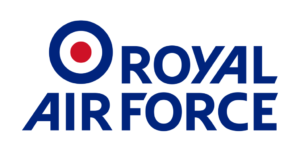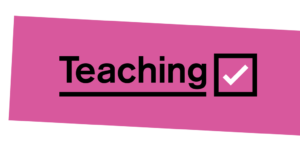
Database Administrator careers guide
Data is another word for information. Big websites run on data… and databases. They need YOU.
Getting into database administration careers
Banks. Hospitals. YouTube. Sites selling gig tickets. They’re all run by databases (in other words, systems which store lots of information). Computers are all about information, and information makes the world go round.
So many companies use computer systems these days. As a database administrator you help to plan how those systems will work, build them and make sure they keep working, all using code. That’s why you’ll have your finger on the world’s pulse as a database administrator (DBA). Depending on your level of experience, your activities could range from inputting data to designing, testing and building new database systems from scratch.
Working hours
As a database administrator, you would typically work 30-40 hours a week. In many places, this is a standard 9 to 5 job. Some organisations might offer vacancies for shift work (for example, if they need database administration round the clock.
Where do database administrators work?
Often you will work in an office as part of an IT team. It’s quite a social job, even when you’re busy. As you build experience and employer trust you may be able to do this job from home, as well – so long as you have a good internet connection and have the equipment/logins/security you need. This is known as remote working. Usually working in typical office hours, you could be working for all kinds of companies, from private employers to the NHS.
How Much Money Can You Earn As A Database Administrator?
These LMI Job Trends give you a sneak peek of how much you could earn starting out for this career, and how much your salary could grow with experience.
Salary guide for database admin jobs
On average, database administrators earn between £24,000-£50,000 depending on the location and employer. Earlier on, you might be inputting data and learning how things work, and getting a starting salary. However, with time, experience, training and promotion you can earn up to £60,000 or more if you start specialising and getting some big project/employers on your CV.
These figures are intended as a guide only.
Skills you need to become a database administrator
Useful skills to put in your CV for database jobs:
- Technical database administration skills – SQL and DBMS
- IT support skills, or technical skills in programming or web development
- Good problem solving and planning skills (coding is about trial and error, and improving your code when things go wrong)
- Ability to meet deadlines
- Good communication skills, both verbal and written. You may be explaining technical issues to people who don’t understand databases the way you do, and you may need to write user guides and reports for the systems you work with.
How do you get these skills?
Vocational qualifications and work experience will help you build these skills over time.
Build Your Skills With the FREE Young Professional Programme

London tech careers are in YOUR reach.
Salary? Jobs? Training? You got it. No experience? No problem. You've got the power. We'll give you the support!
What Qualifications & Training Do You Need For IT Support Careers?
School, college and training
Database administration is one of those jobs where your knowledge and skills are more important than your qualifications. However, getting specific IT qualifications could help you start in a more senior role. In addition, further learning qualifications can help you build work experience to make your CV and job application stand out.
If you’re a school leaver with GCSEs or S grades (grades 9-4 / A*-C) in English, maths, and information and communication technology (ICT) you may be able to successfully apply for a job as a database assistant and build your skills and knowledge on the job.
Useful entry qualifications for a database administration role include:
- Advanced GCE in applied IT
- A-level or H grades in ICT
- Level 3-4 BTEC professional certificate in networking
- Edexcel entry level certificate in ICT
Higher qualifications for database administration and IT careers include:
- HNC/HND course (you may need at least one A-level or two H grades to apply)
- Foundation degree
- Degree (you may need at least two A-level or three H grades to apply)
Useful study subjects for higher qualifications leading to an IT career include:
- Computer science
- Software development
- Electronics
- Maths
- Engineering
University and graduates
Graduates with a non-related degree but proven IT skills can still be taken on by employers in entry roles, graduate schemes, apprenticeships or degree apprenticeships. If you choose, you can also study for a postgraduate IT conversion qualification.
Apprenticeships
You can get into this job through completing an IT apprenticeship. This gives you the opportunity to earn a salary working in digital technology while getting structured learning that leads to an industry-recognised qualification.
There are lots of trainee database administrator jobs and database administrator apprenticeship out there to help you earn a salary as you learn on the job and get a nationally recognised qualification.
Career Progression
With time and experience you could move into IT project management or systems analysis. You could also work as a web developer or move into network management.
Once you’ve built up enough experience, contacts and skills, you could become self-employed or set yourself up as an IT consultant.
In addition, your coding skills could pave the way for you to create a software program or system for yourself rather than for someone else. All big apps, games and software ideas started with someone having the idea in the first place. Once you’ve learned the coding required for database management, you may be tempted to learn more languages like C++ (which is often used for coding programs like video games).
What Work Experience Do You Need For Database Administration Jobs?
Valuable experience for this role includes…
- work experience of any kind where you have demonstrated your IT skills
- Structured query language (SQL)
- Database management systems (DBMS)
- Work shadowing (even if it’s just for a day)
- Work placements in a company
- Work placements on a college or university course
Picking up the relevant IT skills for database administration is something you can do in your own time. You can be the person that friends or family turn to when “switch it off and on again” isn’t enough to solve their IT problem. One of the key coding languages to learn for this job is SQL. There are many free SQL courses and coding communities you can search for online to pick up the basics and get started, such as this free SQL course from CodeCademy. Even if you haven’t yet encountered SQL in academic study or the workplace, an employer will be impressed that you are teaching yourself out of your own free choice.
What Does A Database Administrator Do?
Example daily job responsibilities
- Working with web-based systems to make a database work as part of a website
- Putting in security measures, because online security is very important these days (e.g. adding password protection or a secure way to make online payments)
- Working with a range of IT people including project managers overseeing the project, system developers and programmers to get the job done
- Building a new system? You’ll have to understand what the database is for, who will use it and what other systems it might connect to. Then you’ll plan the database structure and think about how to organise, find and display data
- Test any work you do on a database and check the results for code errors and bugs (things going wrong in the code)
- Putting information into the database, either by filling it with new information or transferring data from another system into it
- Creating technical and user-friendly ways to update information, create back-up copies in case something goes very wrong with the system, and reporting errors.
These Youth Friendly Employers offer great opportunities
These Youth-Friendly Employers might be able to help you get great digital jobs, training or experience! Take a look.
Digital Career Guides
View job descriptions with average UK salary, useful qualifications and a variety of routes into this career.
Digital Career Guides
View job descriptions with average UK salary, useful qualifications and a variety of routes into this career.
See All Our Youth-Friendly Employers

























YES! I Want More Free Careers Help...
So what are you waiting for? Grab your future.

























